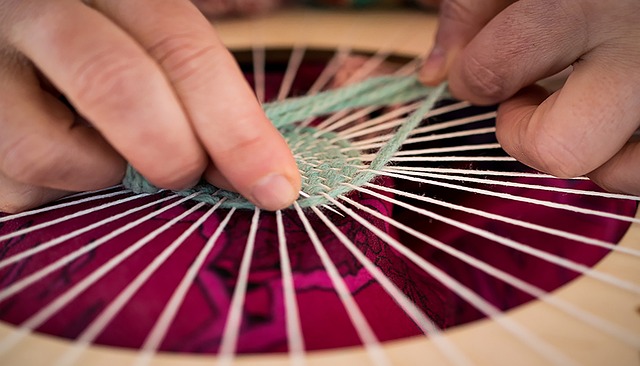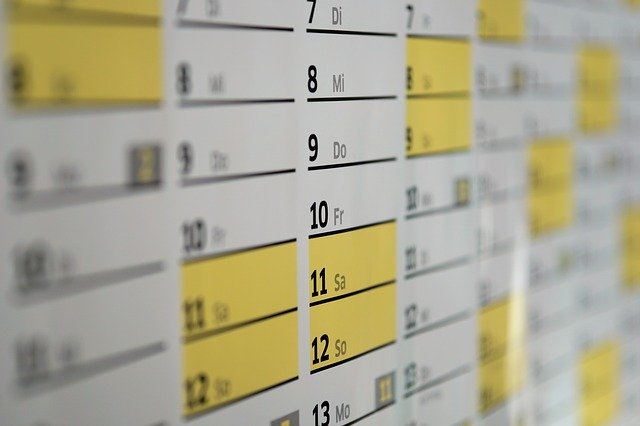We live in a world governed by productivity. From your job, to your personal life, from your side hustle to your hobby, all of them demand one thing: more productivity. Every single aspect of our lives feels like it’s measured by how productive we are.
Work tasks need to be completed both on and off the clock and household chores need to be kept up with. If you want to be healthy, you need to work that time in too. Money almost always needs to be supplemented. There just aren’t enough hours in the day to do everything.
You can elect to work harder or work smarter, but why not do both? If you lift with your back, you can only lift so much before you hurt yourself, but if you lift with your legs, you can carry more, for longer, and you won’t hurt yourself.
It’s easy to improve productivity without just throwing time at it. You just have to rearrange what you’re doing and shape how you’re doing it. Let’s look at the 6 elements of productivity.
Focus on a Single Task

Dispel the myth of multitasking from your life. Multitasking is one of the easiest ways to kill productivity. How long does it take you to get started on a task and how hard is it to get back to it when you’re interrupted? For me, it takes quite a bit to really hit the flow for non-trivial tasks. There are days I get less than 15 minutes of work accomplished because of interruptions.
You can’t do much about outside distractions, but multitasking is cutting out the middle man and asking directly for distractions and interruptions. It’s much easier to focus on one thing at a time than to have multiple other tasks lingering around. Instead of doing 3 tasks for an hour, I typically do one for 15 minutes, then the next for 15 minutes, and finally the last for 15 minutes. I end up saving time and get better results.
This also isn’t to say don’t efficiently use your time. If you’re cooking and you reach a point the food’s in the oven, you don’t need to sit and stare at the oven. Don’t sacrifice the quality of what you’re doing by multitasking, and don’t waste time on a task that you aren’t doing anything for.
Focus on Efficiency

How often do you look at email in the middle of the day or the middle of a task? Most people jump between what they’re doing and email. Not only is this a lazy form of multitasking, but it’s also inefficient. Why not batch the tasks together? Look at email once an hour or once every few hours only, and only after the end of another task.
By batching similar tasks together, you reduce inefficiency in your workflow. Some tasks have the same prerequisites. If you’re printing a book and making copies, you don’t go a page at a time do you? You print the whole thing and then make copies, or just print multiple and have them collated. Spend the fixed cost once for your task, and then do every other task which builds off of that same fixed cost.
Focus on the Process

Are you concerned with the results or the quality of the work? Ideally, the answer is both. You have to plan how to get the results, but then you have to focus entirely on the process until you reach an assessment point.
By breaking tasks up and assessing them at each stage, you focus on the process when doing the process, and focus on the results in the context of the process. If each piece is perfect and fits together, how can the results go bad? Detach yourself from the results and be mindful of what you’re doing at each step, and the rest will work itself out.
Focus on Doing

You want to look at your results to see whether you’re succeeding or if what you’ve done is good, but to be productive, you have to detach yourself from viewing success as the only metric of productivity. Focus on doing things rather than the results alone. A failure which you learn a lot from is worth more than a trivial task which succeeds.
Do more and learn more. Experience more and grow more. Detach the results from your metrics for productivity. Salvage what you can from a failed process. When I fail, I just move on, the results are immaterial to my success except as a learning point.
Focus on Habit

Make productivity a habit. Eliminate distractions and dedicate time to what you’re working on. If you write, don’t just spend time writing, dedicate time to writing. Try to do a little bit every day until it becomes the rule rather than the exception to write. Don’t let yourself give an excuse to not do it. Bumble through it if you have to until it becomes habit. You can have an off day, but you need to push through.
Structure tasks to eliminate distractions. If meetings pick up in the afternoon, make it a habit to dedicate your mornings to tasks which require more time. Leave the emails until the afternoon except for quick checks at fixed intervals. Foster and nurture habits which lend themselves to greater productivity.
Focus on Growth

Don’t just throw your mistakes and inefficiencies away, learn from them and salvage what you can. What did you do wrong and how can you prevent it? Many people let their mistakes go in the trash bin without thinking about what exactly lead to that mistake.
You may remember your last screw up, but why did it happen? What could you have done to prevent it? If there wasn’t anything, how would you have been able to determine that without the knowledge you have in hindsight?
Don’t just focus on past mistakes, look at what you need to be more efficient at your work. Don’t stop learning about what you’re doing. If you’re going to cook, wouldn’t it help to learn a more efficient way to cut? When doing technical work, does it hurt to learn new things? Learn, and apply what you learn, to make tasks more efficient. Let knowledge cross fields and see how it applies.
Conclusion
Eliminate inefficiencies in your process by focusing on a single thing at a time and not multitasking. Batch similar tasks to reduce fixed costs. Detach yourself from the results and be mindful of the process. Pull results out of your metrics for productivity and focus on doing. Habituate your productivity by rearranging your time to fit what you’re doing. Don’t let mistakes be setbacks, use them to learn from. Don’t stop learning and growing.
By combining these 6 elements, you can be more productive overall. Don’t just try to throw time at what you need to do, but throw efficiency and strategy at it. Work smarter and you end up working harder without it being more difficult. Lift from your legs and not your back for everything.
Featured image by Steve Buissinne from Pixabay
